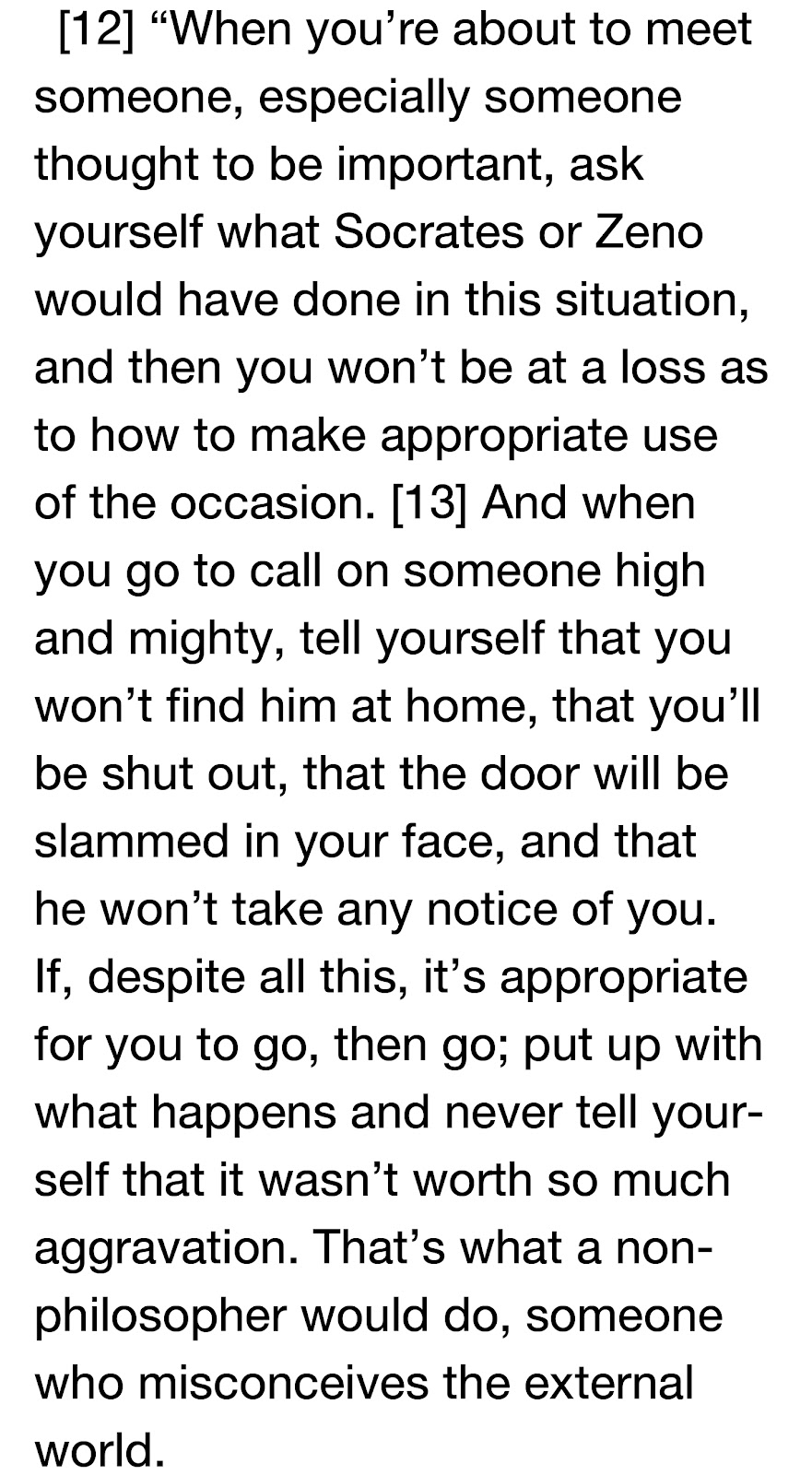240330 What I learned in my studies this morning 4

Today's Meditation(s): Enchiridion , 34 (Waterfield) Another reason temperance is in the four cardinal virtues: it's grease for social gears. If I indulge too much at someone's party, I may eat and drink more than the hosts planned on, leaving them short for other guests and potentially embarrassed. Is there embarrassment up to me? No. Were they proper Stoics, they would understand and not be embarrassed because their virtue remained intact. They did nothing wrong, they merely erred in not accounting for boorish behavior. Still, aside from ignoring moderation as an aim, there's no reason I should want to do that to my hosts and their other guests. Even if they've been rude or inconsiderate, I deserve to follow Nature and pursue wisdom. If that means I cannot withdraw, then I will remain on my best behavior. My behavior is not dependent on theirs.












